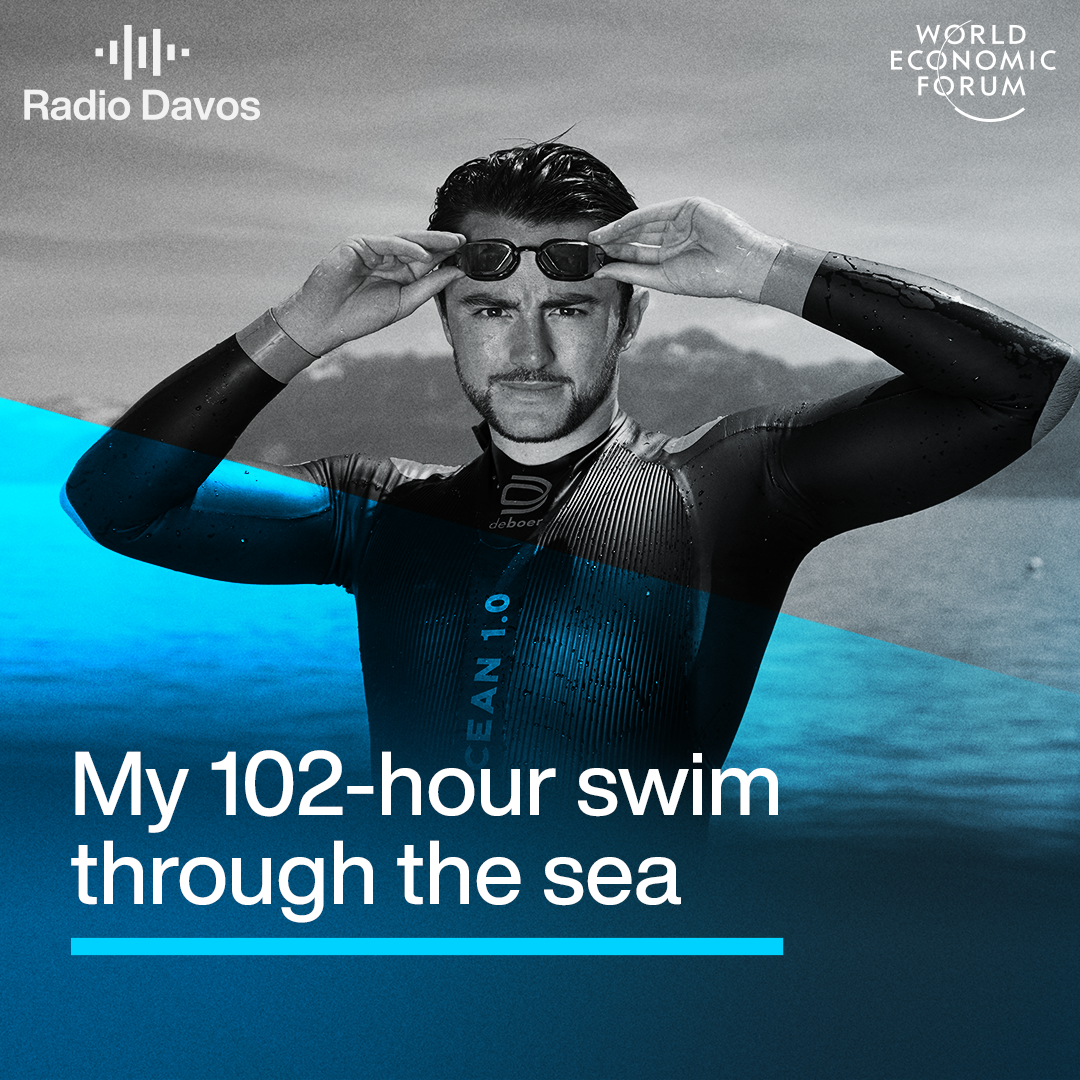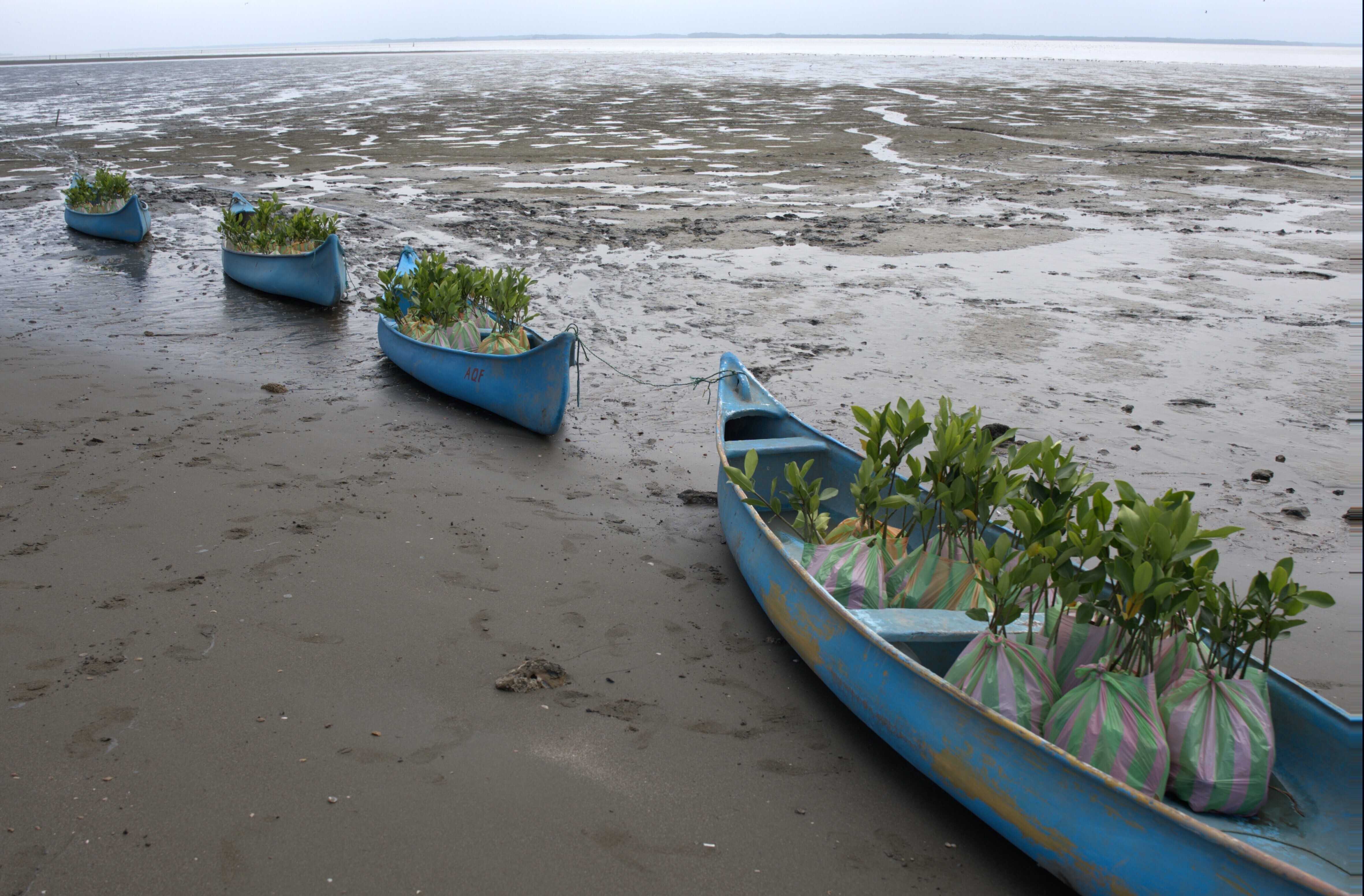Why the ocean is our ally in fighting climate change: experts tell Radio Davos their hopes for COP26

Lewis Pugh swims in freezing waters off Greeland. Image: © Miguel Booth.
- Radio Davos dives into the frozen waters of the Arctic and sweltering mangrove swamps in Colombia.
- UN ocean envoy urges action at the COP26 climate change summit in Glasgow.
- Mangroves protect coasts from the ravages of climate change, and store vast amounts of carbon by sucking it into the mud below.
- Endurance swimmer Lewis Pugh explains what swimming in icy waters off Greenland has taught him about climate change.
- Find out more: Friends of Ocean Action
- Subscribe to the podcast: https://pod.link/1504682164
We all know that trees fight climate change by breathing in carbon dioxide and breathing out oxygen. But what about the ocean and coastal ecosystems -- how do they impact the climate crisis?
On this episode of Radio Davos we hear from an expert who has spent decades wading into Colombian swamps to extract soil samples from mangrove forests to learn more about carbon sequestration.
What's the World Economic Forum doing about the ocean?
“In the case of mangroves, sediments can account for between 50 and 90% of the total carbon. That is the difference between mangroves and terrestrial forests,” says María Claudia Díazgranados Cadelo of Conservation International. “When mangroves are destroyed or degraded the carbon stocks that took millennia to accumulate and are located in these sediments, they are released in a matter of years, turning these important carbon sinks Into a significant carbon source.”
We also hear from a man who has been swimming in freezing arctic waters since 2003 to shine a spotlight on how global warming is already changing our world.
“When I did my first swim in the arctic, the water was 3 degrees centigrade. I went back there 12 years later and the water was no longer 3 degrees, it was 10 degrees centigrade,” says Lewis Pugh. “I've been in the ice for the last 18 years and I'm seeing the changes and I'm feeling them. Every single degree of water temperature which goes up or goes down has a huge difference.”
Peter Thomson, the United Nations’ Special Envoy for the Ocean and and Co-Chair of Friends of Ocean Action, calls on global leaders at COP26 to "deliver us from this nightmare".
“From the ocean's perspective, everything is connected. Think of it as one bathtub. So, what's flowing off the Greenland ice sheet is causing a rising sea level in an atoll republic. If you're burning coal to get your electricity, you're contributing to the drowning of an age-old island culture.”
Find all our podcasts here.
Subscribe: Radio Davos; Meet the Leader
Don't miss any update on this topic
Create a free account and access your personalized content collection with our latest publications and analyses.
License and Republishing
World Economic Forum articles may be republished in accordance with the Creative Commons Attribution-NonCommercial-NoDerivatives 4.0 International Public License, and in accordance with our Terms of Use.
The views expressed in this article are those of the author alone and not the World Economic Forum.
Stay up to date:
SDG 13: Climate Action
Forum Stories newsletter
Bringing you weekly curated insights and analysis on the global issues that matter.






